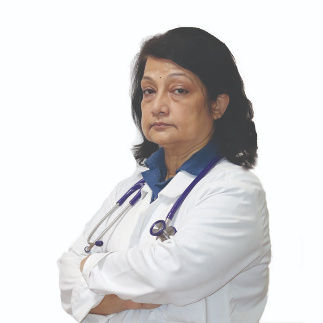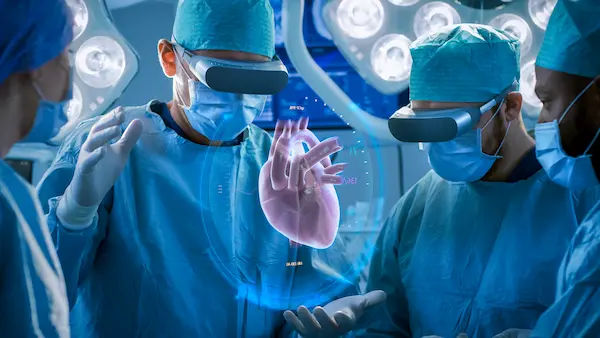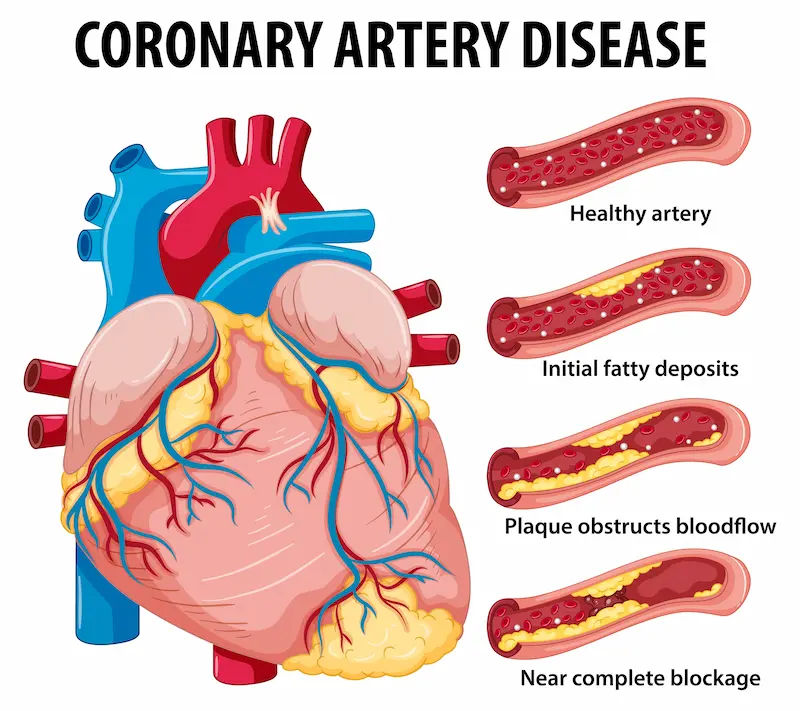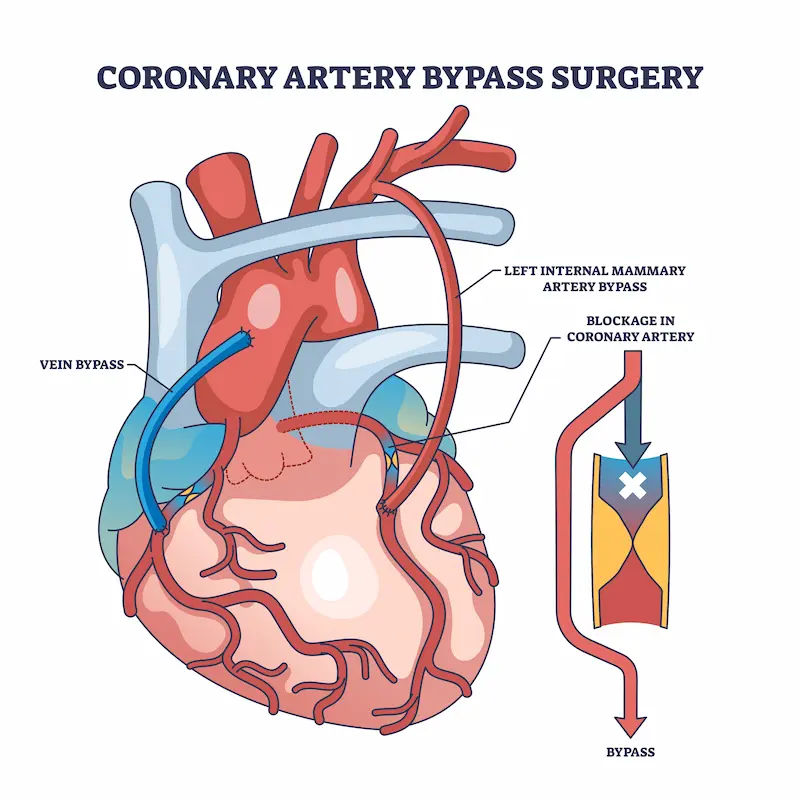Guide to Myths And Facts Of Coronary Artery Bypass Grafting
Know about the coronary artery bypass surgery(CABG). What it is, treatment options, recovery path and the top 4 myths of CABG.


Introduction
The words "you need heart bypass surgery" can be overwhelming. Amidst the anxiety, you’re likely bombarded with well-meaning but often inaccurate advice and terrifying stories from friends, family, and the internet. It’s crucial to separate dramatic fiction from medical reality. Coronary Artery Bypass Grafting (CABG), often called heart bypass surgery, is one of the most studied and refined procedures in modern medicine, yet it remains shrouded in misconceptions. This guide aims to demystify CABG by tackling the most common myths and presenting the evidence-based facts. Our goal is to empower you with clear, accurate information, easing your mind and helping you approach your treatment decisions with confidence and clarity.
What is Coronary Artery Bypass Grafting (CABG)?
Coronary Artery Bypass Grafting (CABG) is a surgical procedure used to treat severe coronary artery disease (CAD). CAD occurs when the primary blood vessels (coronary arteries) that supply your heart muscle with oxygen-rich blood become clogged due to plaque buildup (atherosclerosis). This restricts blood flow, leading to chest pain (angina) and significantly increasing the risk of a heart attack.
The Basic Principle: Creating a New Highway for Blood
Think of a blocked artery as a congested road. A coronary bypass doesn't clear the traffic jam; it builds a new road
around it. The surgeon takes a healthy blood vessel—called a graft—from another part of your body (like your chest, leg, or arm). This graft is then attached to the aorta (the main heart artery) and connected to the coronary artery below the point of blockage. This creates a new, clear pathway for blood to flow directly to the heart muscle, "bypassing" the obstruction.
Consult a Top Cardiologist for Personalised Advice
When is CABG the Recommended Treatment?
CABG isn't the first line of defense for all heart disease. It's typically recommended in specific scenarios, such as:
- Left Main Coronary Artery Disease: A blockage in this critical artery.
- Multi-Vessel Disease: Severe blockages in multiple major arteries.
- Diabetes: Patients with diabetes often have better long-term outcomes with CABG compared to stents.
- Weakened Heart Muscle: When the heart's pumping function is reduced.
- Failed Previous Interventions: When angioplasty or stenting hasn't been successful or isn't possible.
If you have been diagnosed with any of these conditions, a detailed discussion with a cardiologist and cardiothoracic surgeon is essential to determine if bypass surgery is the right choice for your specific anatomy and health status.
Top 4 Myths and Facts About Coronary Artery Bypass Surgery
Myth 1: "Heart Bypass Surgery is Extremely Dangerous and Often Fatal."
Fact: While all major surgery carries risk, CABG is remarkably safe. According to the Society of Thoracic Surgeons,
the national average risk of mortality for isolated CABG surgery is between 1-2%. Advancements in surgical
techniques, anaesthesia, and post-operative care have dramatically improved these outcomes over the decades. A patient's individual risk depends on their age, other health conditions, and the complexity of the surgery.
Myth 2: "You'll Be Bedridden and Incapacitated for Months."
Fact: This is a significant overstatement. Most patients are sitting in a chair the day after surgery and walking short distances with assistance within 2-3 days. A typical hospital stay is 4-7 days. While full recovery takes time, patients are encouraged to be progressively active. Cardiac rehabilitation recovery time is structured and gradual, but it focuses on rebuilding strength and endurance, not prolonged bed rest.
Myth 3: "Bypass Surgery is an Outdated Procedure Thanks to Stents."
Fact: This is a classic case of "one size does not fit all." While stents (percutaneous coronary intervention or PCI) are excellent for treating single, localised blockages, CABG vs angioplasty studies consistently show that for complex, multi-vessel disease, CABG provides more complete revascularisation and better long-term durability. It often leads to fewer repeat procedures and better outcomes for specific patient groups, making it a very modern and vital tool.
Myth 4: "If You Have a Bypass, You No Longer Need Medication."
Fact: This is perhaps one of the most dangerous myths. Bypass surgery treats the current blockages but does not cure the underlying disease process—atherosclerosis. Medication is essential to protect the new grafts and prevent new blockages from forming in other arteries. You will likely need to take aspirin, a statin (cholesterol-lowering drug), and possibly a beta-blocker for the rest of your life. Adhering to medication after heart surgery is non-negotiable for long-term success.
The Reality of Recovery: What to Really Expect After CABG
Recovery is a marathon, not a sprint. Understanding the phases can help set realistic expectations.
The Hospital Stay and Immediate Post-Op Period
You will wake up with tubes and monitors, which are standard and temporary. Pain is managed effectively with
medication. The focus is on preventing complications like infection or pneumonia by having you breathe deeply andmove as soon as it's safe. You will be discharged with specific instructions about caring for your incision(s) and recognising warning signs.
The Role of Cardiac Rehabilitation
This is the cornerstone of a successful recovery from coronary bypass. Cardiac rehab is a supervised program involving exercise training, education on heart-healthy living, and counselling. It is proven to reduce mortality, improve functional capacity, and provide psychological support. Patients who complete cardiac rehab report a much higher quality of life and confidence.
Conclusion
Navigating the journey of heart disease and treatment is challenging enough without the added burden of
misinformation. By confronting the myths and facts surrounding Coronary Artery Bypass Grafting, we hope to have replaced fear with understanding and anxiety with empowerment. Remember, CABG is a life-saving procedure that has restored health and vitality to millions. It is a treatment for a disease, not a verdict on your future. If you have been advised to consider this procedure, use this knowledge as a foundation for a detailed, open conversation with your cardiologist. If you need a second opinion or want to discuss your heart health with a specialist, you can consult a renowned cardiologist online with Apollo24|7 for a convenient and expert perspective.
Consult a Top Cardiologist for Personalised Advice
Consult a Top Cardiologist for Personalised Advice

Dr Gautam Naik
Cardiologist
12 Years • Senior ConsultMBBS, MD (General Medicine), DM (Cardiology), Interventional Cardiology Fellowship (Royal Papworth Hospital, Cambridge, UK), Structural Heart Intervention Fellowship (Barts Heart Centre, St Bartholomew's Hospital, London)
Delhi
Apollo Hospitals Indraprastha, Delhi

Dr. Rakesh Gopal
Cardiologist
22 Years • “ Trained in Trans Aortic Valve Implantation ( TAVI ) from Mehmet Akif Ersoy Hospital Istanbul, Turkey “ & MD (General Medicine), FRCP (Glasglow)DNB( Cardiology), FESC, HICR Cert (Harvard University, USA), Angioplasty Training from Washington Adventist Hospital USA, Asan Medical Centre, Seoul Korea, Board certified in Cardio Oncology, ICOS- USA
Chennai
Apollo Hospitals Heart Centre Thousand Lights, Chennai
(100+ Patients)
Dr. Raman Puri
Cardiologist
29 Years • MD, DM
Delhi
Apollo Hospitals Indraprastha, Delhi

Dr. Tripti Deb
Cardiologist
40 Years • MBBS, MD, DM, FACC, FESC
Hyderabad
Apollo Hospitals Jubilee Hills, Hyderabad

Dr. Gautam Singal
Cardiologist
10 Years • MBBS, DNB - General Medicine, DNB - Cardiology
Delhi
Apollo Clinic East Of Kailash, Delhi
Consult a Top Cardiologist for Personalised Advice

Dr Gautam Naik
Cardiologist
12 Years • Senior ConsultMBBS, MD (General Medicine), DM (Cardiology), Interventional Cardiology Fellowship (Royal Papworth Hospital, Cambridge, UK), Structural Heart Intervention Fellowship (Barts Heart Centre, St Bartholomew's Hospital, London)
Delhi
Apollo Hospitals Indraprastha, Delhi

Dr. Rakesh Gopal
Cardiologist
22 Years • “ Trained in Trans Aortic Valve Implantation ( TAVI ) from Mehmet Akif Ersoy Hospital Istanbul, Turkey “ & MD (General Medicine), FRCP (Glasglow)DNB( Cardiology), FESC, HICR Cert (Harvard University, USA), Angioplasty Training from Washington Adventist Hospital USA, Asan Medical Centre, Seoul Korea, Board certified in Cardio Oncology, ICOS- USA
Chennai
Apollo Hospitals Heart Centre Thousand Lights, Chennai
(100+ Patients)
Dr. Raman Puri
Cardiologist
29 Years • MD, DM
Delhi
Apollo Hospitals Indraprastha, Delhi

Dr. Tripti Deb
Cardiologist
40 Years • MBBS, MD, DM, FACC, FESC
Hyderabad
Apollo Hospitals Jubilee Hills, Hyderabad

Dr. Gautam Singal
Cardiologist
10 Years • MBBS, DNB - General Medicine, DNB - Cardiology
Delhi
Apollo Clinic East Of Kailash, Delhi
More articles from Coronary artery disease
Frequently Asked Questions
1. What is the typical life expectancy after CABG surgery?
With successful surgery and proper lifelong management (medication, diet, exercise), many patients enjoy a normal or near-normal life expectancy. Studies show that over 90% of patients are still alive after 5 years, and 75% after 10 years.
2. How long does a bypass graft last?
Grafts using an artery from the chest (internal mammary artery) have exceptional longevity, often remaining open for over 20 years. Vein grafts from the leg have a lower patency rate, with about 50-60% still open after 10 years. This is why medication to protect the grafts is so important.
3. What are the signs that you might need bypass surgery?
Not everyone has symptoms, but common signs include chest pain (angina), shortness of breath, extreme fatigue with exertion, and a heart attack. Ultimately, the decision is based on diagnostic tests like a coronary angiogram, which reveal the location and severity of blockages.
4. Is off-pump or beating heart bypass surgery better?
Both 'on-pump' (using a heart-lung machine) and 'off-pump' techniques are effective. The best choice depends on the patient's specific anatomy and the surgeon's expertise. Studies show similar long-term outcomes, and your surgical team will recommend the safest approach for you.
5. How long does it take to return to work after a bypass?
This varies greatly depending on your job. Those with sedentary jobs may return in 6-8 weeks. For physically demanding jobs, it may take 3-4 months or longer, and you may require a graded return-to-work program cleared by your doctor.




 Purpose, Procedure, and Results.webp)